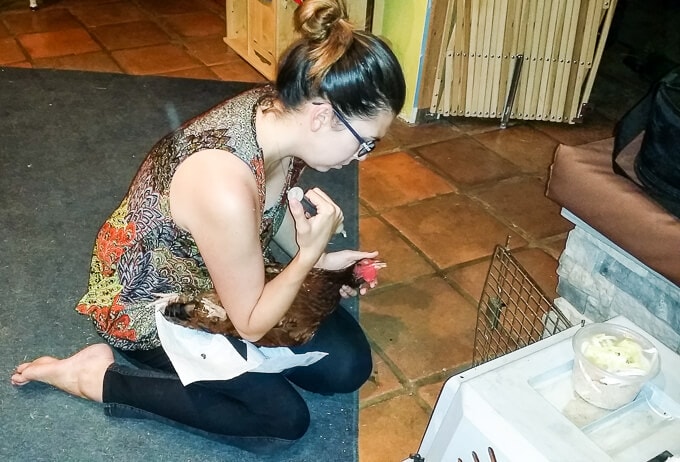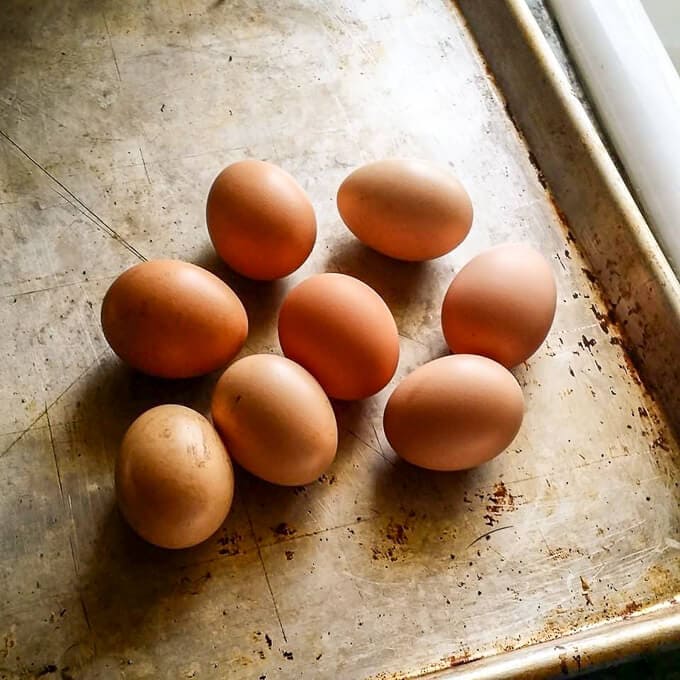Well, this sucks. For those of you who are wondering, bordetella avium is not a fancy new name for my pot pie. It's a gnarly disease that chickens get on occasion. So far, we've lost three good layers to it.

Bordetella avium is also not the same thing as bordetella in dogs (commonly known as kennel cough). In our case, it came on suddenly. One of the chickens was acting lethargic with a bit of mucus coming out of her eyes when we checked on her in the evening. The next day, she was dead.
I didn't think too much of it. As I've said before, chickens die. It's not that unusual. But then a second chicken got sick with the same symptoms. We took her to the vet for fear that our whole flock would be wiped out, and a quick test gave us a definitive diagnosis: bordetella avium.
Handling Bordetella Avium and other Chicken Diseases

Bordetella avium most commonly affects turkeys, but it can cross over to chickens and quails. In our case, it was likely left in the coop from the previous owner's turkeys, or it could have been transferred from droppings of other birds in the area. The characteristics of bordetella avium include respiratory distress, refusal to eat, lethargy, lockjaw (my sick chicken wouldn't let me easily pull her mouth open, which chickens are usually pretty calm about) as well as diarrhea and foamy white or yellow mucus coming from the eyes, nose and mouth.
The treatment for bordetella avium is the same as almost any other chicken disease, including cholera and coccidiosos. The vet recommended we separate the sick chicken from the flock and administer a sulfa drug (sulfadimethoxine, purchase at our local feed shop) in the water of ALL the birds to nip any festering ailments in the bud.

The package says that sulfa drugs are not recommended for layers over 16 weeks due to the potential for humans to inadvertently ingest the drug through the chicken's eggs and become resistant to it, causing issues if they later need to use the human version for urinary tract or other human infections. My vet, however, told me to give the chickens a withdrawal period of 30 days after discontinuing the drug before I started eating their eggs again.
That means that approximately 200 eggs went to waste in our house, which was a crying shame.
It's also good to offer the sick chicken meal worms, oatmeal, scrambled eggs and vegetables to encourage them to eat. A mash of soaked chicken feed can also be squirted into their mouth with a syringe, which did work for us! Our sick chicken eventually got better…only to later succumb to a dog attack when she was resting in our chicken crawler.
Damn it.
Whenever bordetella avium or any other illness is suspected among your chickens, it's important to clean the coop from top to bottom, scrubbing everything with vinegar to eradicate the disease. We did have another chicken get sick and die from bordetella avium after the first two, but we're hoping we've gotten it cleared out with three thorough cleanings. Mortality from bordetella avium is said to usually be from a secondary infection after the immune system is weakened, and many chickens do recover from the disease if they aren't too far gone. The issue, particularly with a large flock, is detecting it early enough to intervene. If you have a chicken that is very ill and you really, really want to save it, vets can prescribe antibiotic shots twice daily for about $200.
Obviously, we didn't go that route.
People and dogs are not believed to be susceptible to bordetella avium.
But that doesn't stop me from thoroughly washing my hands any time I touch them.